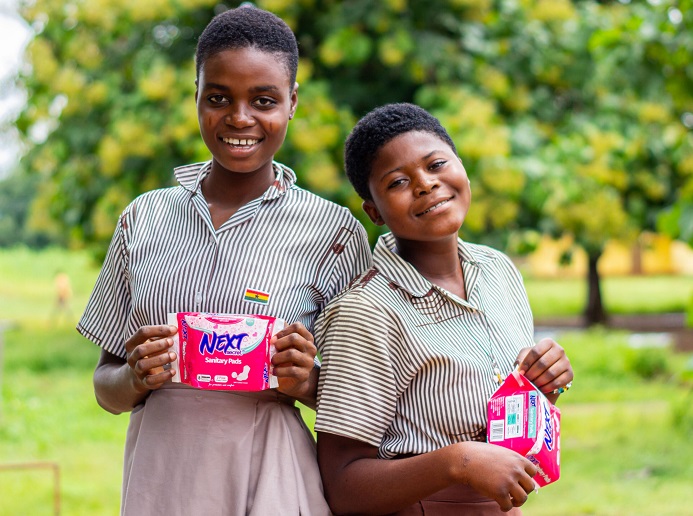The Government of Ghana has earmarked GH¢300 million for the procurement and distribution of sanitary pads to schoolgirls in deprived communities—a decision that has drawn both praise for addressing menstrual health and criticism over its cost and long-term sustainability.
Speaking on Pan African TV’s Talk Time on April 12, 2025, Minister of State in charge of Government Communications, Felix Kwakye Ofosu, defended the initiative, describing it as a vital step to curb absenteeism among girls during their menstrual periods.
“About GH¢300 million has been set aside to purchase about 12 million pieces of sanitary towels to share to girls in needy areas,” Ofosu disclosed, adding that the government had identified a troubling pattern of school truancy linked to the inability of girls to afford basic menstrual hygiene products.
The issue of “period poverty”—the struggle to access sanitary products due to financial constraints—has plagued many low-income communities across Ghana for years.
Research and anecdotal reports have indicated that girls often skip school during their menstruation due to lack of access to pads, which in turn affects academic performance and future opportunities.
The sanitary pad distribution initiative was first announced by Finance Minister, Cassiel Ato Forson during the presentation of the 2025 national budget.
“We have allocated an amount of GHC292.4 million to commence the distribution of free sanitary pads to female students in primary and secondary schools,” he told Parliament.
For years, sanitary pads were treated as luxury goods under Ghana’s tax laws.
Prior to a recent policy shift, they attracted multiple levies—20% import duty, 12.5% VAT, and additional statutory charges—resulting in a total tax burden of 32.5%.
This elevated retail prices of pads to between GH¢20 and GH¢40, making them unaffordable for many families.
Critics have long pointed to the health and social risks of this taxation model, with many girls resorting to unhygienic alternatives, risking infections and other complications.
The new policy seeks to undo some of these systemic barriers and promote gender equity in education, health, and overall well-being.
According to Felix Kwakye Ofosu, the initiative falls under the government’s broader strategy to enhance educational access and support young women.
However, the GH¢300 million price tag has not gone unchallenged.
Kennedy Osei Nyarko, Member of Parliament for Akim-Swedru, took to Facebook to question the government’s fiscal logic and long-term planning.
In his post, he suggested that the same amount of money could have been used more efficiently by investing in local manufacturing.
“The last time I checked with a factory in China that produces a complete set of sanitary product machinery that can make a minimum of 12 tons per day, the cost was around $60,000,” Nyarko wrote.
“So why will the government spend GH¢300 million each year to purchase sanitary pads? Any serious government would have considered setting up a Special Purpose Vehicle (SPV) with private participation to produce the same product perpetually.”
He further criticized the lack of foresight in the policy, stating, “If the government has GH¢300 million to procure sanitary pads, why can’t it use the same money to set up a factory to produce them locally at a fraction of the cost?”







